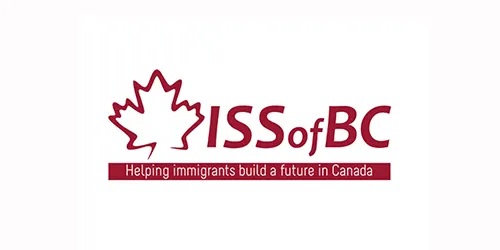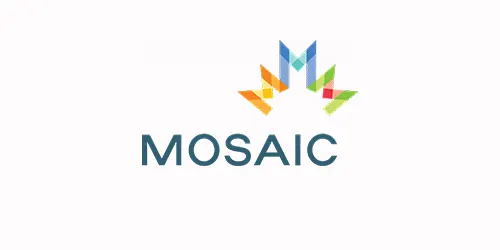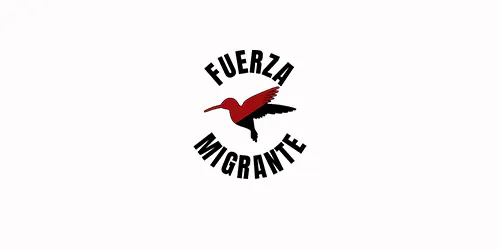
If your work permit expires before you apply to extend it, you lose your status as a migrant worker in BC.
As a migrant worker in BC, you may want to extend your work permit. Perhaps your employer offered to renew your contract. Maybe you’ve been offered a new job elsewhere in BC. Or maybe you want to stay while your permanent residence application gets processed. We explain your rights and the steps to take.
What you should know
If you want to extend your stay in BC as a worker, you must apply before your current work permit expires. Once you file your application, you have “maintained status." That means you can continue to work in Canada until the federal government decides your application.
If you miss the deadline, you may be able to restore your status and authorization to work. See the next section for guidance.
You may need to apply for a new work permit
If you finish at your current job and are offered another job in Canada, you will need to apply for a new work permit. Don’t start your new job without a work permit that authorizes you to work in the new position.
“As a seasonal worker, my job was only supposed to last until the end of the summer. But this year the harvest went late, and my employer asked me to stay an extra month. I agreed to stay on, but I forgot to renew my permit before it expired. Luckily, I applied to restore my status within the 90-day period and my extension was granted.”
– Marino, Guatemala

You lose your status as a migrant worker in BC if your permit expires before you apply for an extension. In other words, you lose your legal right to continue working in BC.
If you find yourself in this situation, you may be able to restore your status. To do so, you must:
apply within 90 days of losing your status, and
keep meeting the requirements for your stay, and
have met the conditions listed on your permit, and
pay the appropriate fees.
If you’re eligible, follow the steps in the apply to extend your work permit section below. On your application form, indicate that you’re applying for:
an initial work permit or a work permit with a new employer, and
restoration of your status as a worker.
Describe your situation. Explain why you ended up staying in BC past the end of your work permit. The application form has space for you to write this out.
If you apply for an extension and the government refuses it, you have 90 days from that refusal notice to apply for a restoration of your status and authorization to work.
A work permit allows you to work in BC temporarily. If you want to immigrate (stay in BC permanently), you must qualify under one of the permanent resident categories.
One option is to be nominated under the BC Provincial Nominee Program (PNP). The BC PNP offers permanent residence to experienced workers, business people and their family members.
There are two different program “streams” you can apply under:
Skills Immigration. Another option for migrant workers with the skills, experience and qualifications needed by BC employers. (Note that as of 2025, this program is primarily open to healthcare workers.)
Entrepreneur Immigration. For experienced business people wanting to start their own business in BC.
If the BC PNP isn’t the right fit for you or your family, there are alternatives. These include:
Canadian Experience Class (an Express Entry program). Open to those who have skilled work experience in Canada in the last three years.
Federal Skilled Trades Program (an Express Entry program). Open to those qualified in a skilled trade.
Federal Skilled Worker Program (an Express Entry program). Open to those who have gained skilled work experience outside of Canada in the last 10 years.
Family sponsorship. A way for Canadian citizens and permanent residents over the age of 18 to sponsor certain relatives to come to Canada.
Rural Community Immigration Pilot. Open to skilled workers who want to settle in rural and more remote communities.
Francophone Community Immigration Pilot. Open to skilled workers who want to settle in rural and more remote Francophone-minority communities.
You can hire a representative if you need support
The BC PNP and Express Entry processes allow you to submit an immigration application on your own. But to ensure your application is as strong as it can be, it can be helpful to get expert advice. You can hire a representative (an immigration lawyer or consultant, for example) to help you with the process. The provincial government’s website has more information on using a representative.
A bridging open work permit lets you keep working while you wait for the results of your permanent residence application. You may be eligible for a bridging open work permit if:
you applied for permanent residence, and
you have a valid work permit, are on maintained status, or are within the restoration period, and
you’re currently in Canada.
The federal government’s website has more information on applying for a bridging open work permit.
Apply to extend your work permit
Check the expiry date on your work permit. You must apply to extend your work permit before your current permit expires. If you miss the deadline, you may still be able to get an extension. But you must stop working until your new work permit is issued. See the what you should know section, above.
Pay attention to time zones
In Canada, work permit deadlines are governed by the UTC time zone. This means that the exact timing of the deadline may be different in your time zone. Aim to apply prior to your work permit’s expiry date to avoid the risk of missing the deadline.
The documents you need to submit with your application will vary depending on your permit category. Visit the federal government’s website to find the application package that applies to you. Once you make a selection, you’ll get a personalized document checklist with the forms you need to submit.
Fill out each section of the forms you’re required to submit. If a section doesn’t apply to you, write “not applicable” or “NA.” Sign and date your application. If you need more space for any section, you can upload an explanation sheet and submit it with your application.
Make sure your application is complete before you submit it. An incomplete application could delay processing or result in a finding of misrepresentation. See this guidance from the federal government on how to fill out your application.
Except in limited circumstances, all applications must be made online through the federal government’s website.
A processing fee is required for each service you’re applying for. If you’re applying for more than one service, add up the fees and submit the total with your application.
The basic fees (in Canadian dollars) are:
work permit extension (per person): $155
work permit extension (group of three or more performing artists): $465
open work permit extension: $100 (in addition to the $155 processing fee)
restore your status as a worker: $239.75
If your temporary resident status has expired and you’re applying for a work permit, you must pay:
the work permit extension fee, and
the fee to restore your status as a worker.
How to pay your fees
When submitting your application online, the platform will request payment by credit card during the submission process.
Except in limited circumstances, all applications must be made online, through the federal government's website. To apply online, you’ll need a scanner or camera to create electronic copies of your documents. You’ll also need a valid credit card or debit card.
If any further action is required, the federal government will say so in a letter.
Either way, you’ll receive a letter telling you your application was accepted or refused. If your application is refused, you can only stay in Canada until your current temporary resident status expires. That is, unless you qualify to apply for restoration of your status.
Common questions
You can apply to restore your work permit in the first 90 days after it expires. If you do this, you can stay in Canada until you receive further instructions. But you must stop working until you receive your restored permit.
If you don’t apply to restore your work permit within 90 days, you should leave Canada or get legal advice. In some cases, it’s possible to regain your migrant worker status. If you don’t regain your status and you don’t leave, you could be arrested and deported. If you are deported, you may be able to apply for an authorization to return to Canada.
See the what you should know section, above.
Yes, you’re allowed to leave Canada and come back. However, there are three possibilities when you return:
If your work permit extension hasn’t yet been granted, you may be allowed back as a visitor. But you can’t work in Canada until you get your extension, unless you’ve applied for a post-graduation work permit.
You may be allowed to return as a worker if your work permit extension was granted while you were away.
You may be asked to apply for a new work permit at the port of entry.
Note that applying at a port of entry upon return from recent travel to the US or St. Pierre and Miquelon (called “flagpoling”) is now mostly prohibited.
Who can help

Immigrant Services Society of BC
Provides settlement and employment services to new immigrants.

MOSAIC
A non-profit providing free settlement services to new immigrants.

S.U.C.C.E.S.S.
An organization that delivers settlement services to immigrants in BC, including integration and mentoring programs, legal clinics, pre-departure workshops and more.

Fuerza Migrante
A non-profit organization of migrant workers and volunteers that promotes migrant workers’ rights in Canada and abroad.

Migrant Worker's Centre
A non-profit organization that provides legal information, advice and full representation to migrant workers in BC.

Access Pro Bono's Legal Advice Clinics
Volunteer lawyers provide 30 minutes of free legal advice to people with low or modest income.

Access Pro Bono’s Everyone Legal Clinic
Clinicians provide affordable fixed-fee services on a range of everyday legal problems.

BC Legal Referral Service
Helps you connect with a lawyer, notary or paralegal for a free 15- to 30-minute consult to see if you want to hire them.

BC Legal Directory
Search for a lawyer by community, area of law, or language spoken. From the Canadian Bar Association, BC Branch.


